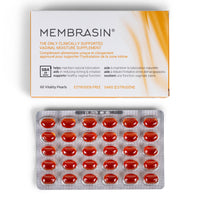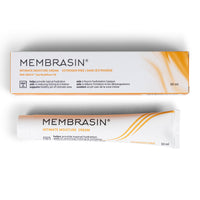Yearly Mammograms: Prioritizing Your Breast Health, Especially During and After Menopause
As women, we face numerous health changes throughout our lives. One vital aspect of maintaining our overall well-being is staying proactive about breast health, especially as we age. Yearly mammograms play a critical role in early detection of breast cancer, improving the chances of successful treatment and potentially saving lives. For women approaching menopause or already in it, understanding how menopause affects breast health is crucial. In this blog post, we’ll explore the importance of annual mammograms, how menopause impacts breast health, and where to find low or no-cost mammograms and support if diagnosed with breast cancer.
Why Yearly Mammograms Are Essential
Mammograms are specialized X-ray exams that can detect changes in breast tissue that may indicate cancer. Early detection through mammography is one of the most effective tools in the fight against breast cancer. According to the American Cancer Society, regular mammograms can help reduce breast cancer mortality rates by detecting cancers early when they are most treatable.
Doctors typically recommend that women begin getting mammograms annually starting at age 40, but those with a family history of breast cancer or other risk factors may need to begin screening earlier. Even if you feel perfectly healthy and don’t notice any changes in your breasts, mammograms can detect tumors that are too small to feel, often before symptoms develop.
The Impact of Menopause on Breast Health
Menopause brings significant hormonal changes that can influence breast tissue. As estrogen levels drop, breast density typically decreases. While this might seem like a good thing since dense breast tissue can make mammograms harder to interpret, the reduction in estrogen also raises the risk of developing breast cancer post-menopause.
The following breast health changes during menopause highlight why continued vigilance with mammograms is important:
- Changes in breast density: As mentioned, breasts often become less dense, making it easier for mammograms to detect abnormalities.
- Increased breast cancer risk: While age is a major risk factor for breast cancer, postmenopausal women are at higher risk due to prolonged exposure to estrogen before menopause.
- Breast discomfort: Some women experience increased breast sensitivity or discomfort during menopause. While this is often a natural result of hormonal shifts, it’s important to report any persistent pain, lumps, or changes in breast appearance to your doctor.
While menopause itself is a natural transition, it underscores the importance of continued breast cancer screening. Neglecting regular mammograms after menopause can allow potential cancers to go undetected for longer, decreasing the likelihood of effective treatment.
Accessing Low or No-Cost Mammograms
For many women, the cost of healthcare can be a significant barrier to getting regular mammograms. Fortunately, there are several resources available that can help make this life-saving screening more affordable:
- The National Breast and Cervical Cancer Early Detection Program (NBCCEDP): This program provides free or low-cost mammograms and diagnostic services to low-income, uninsured, and underinsured women. It's available in all 50 states, the District of Columbia, and several U.S. territories.
- Planned Parenthood: Many Planned Parenthood health centers offer mammograms at low or no cost, particularly for those who are uninsured or underinsured.
- Local hospitals and health departments: Some hospitals and health clinics host free mammogram days or have sliding-scale payment options based on income. Check with your local healthcare providers to see if they participate in these programs.
- Charitable organizations: Nonprofits like the Susan G. Komen Foundation the American Cancer Society and Breast Cancer Alliance often partner with clinics to offer low-cost mammogram screenings and provide education on breast health.
Resources for Those Diagnosed with Breast Cancer
Receiving a breast cancer diagnosis can be overwhelming, but there are numerous resources to provide support during this difficult time. Here are some organizations and programs offering assistance:
- Susan G. Komen Foundation: In addition to funding research, Susan G. Komen provides emotional and financial support to individuals diagnosed with breast cancer. They offer patient navigation services, which help connect patients to the resources they need, from treatment information to financial assistance.
- American Cancer Society: This organization provides a range of support services, including lodging for treatment, transportation assistance, and peer-to-peer support through their Reach to Recovery program, which connects breast cancer survivors with those newly diagnosed.
- Breast Cancer Assistance Fund (BCAF): This fund helps women pay for medical expenses related to breast cancer treatment, including co-pays, medication, and surgery.
- CancerCare: CancerCare offers free, professional support services, including counseling, support groups, and financial assistance to help women with breast cancer cope emotionally and manage the costs of treatment.
Take Charge of Your Breast Health
Whether you’re approaching menopause, currently going through it, or have already transitioned, annual mammograms remain an essential part of maintaining your health. Menopause can change your breast tissue, and the risk of developing breast cancer increases as you age. Staying informed, getting regular screenings, and knowing where to turn for financial help can ensure that you’re doing everything possible to stay ahead of any potential breast health concerns.
If cost is a concern, remember that resources are available to help make mammograms more accessible, and if you ever face a diagnosis, there are many organizations ready to offer support. Prioritize your health—schedule your yearly mammogram today!
*image designed by freepik



